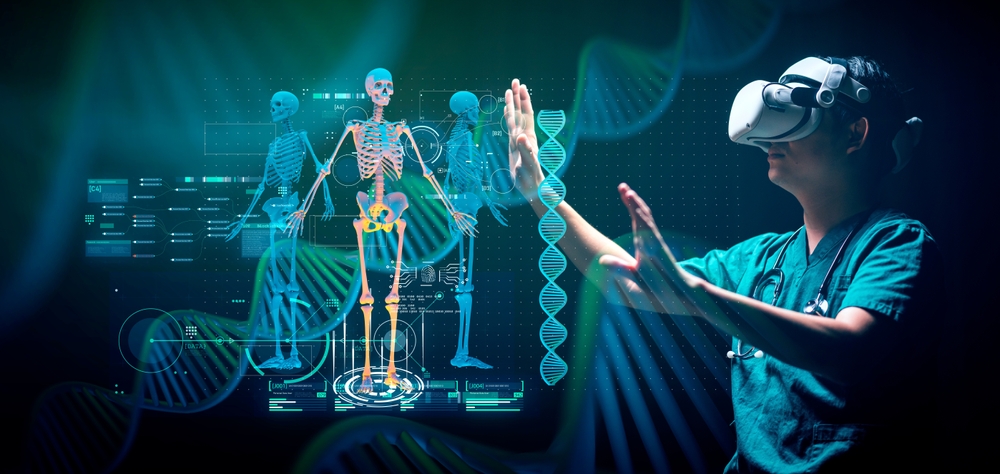
AI Revolutionizing Healthcare: Early Detection and Personalized TreatmentAI Revolutionizing Healthcare: Early Detection and Personalized Treatment Artificial intelligence (AI) is rapidly transforming the healthcare landscape, empowering healthcare professionals with unprecedented tools to revolutionize patient care. Here’s how AI is impacting early disease detection and paving the way for personalized treatment: Early Disease Detection: * Image analysis: AI-powered algorithms analyze medical images (e.g., X-rays, CT scans) with remarkable accuracy, detecting anomalies and identifying diseases at earlier stages. For instance, AI can detect diabetic retinopathy up to four years before it becomes apparent to human eyes. * Machine learning: AI systems learn from vast datasets to predict the onset of certain diseases based on risk factors and lifestyle factors. This allows for proactive screening and early intervention, improving treatment outcomes. Personalized Treatment: * Precision medicine: AI analyzes genetic data, medical history, and other patient-specific information to create personalized treatment plans. By tailoring treatments to each individual, AI optimizes efficacy and reduces side effects. * Targeted therapy: AI identifies specific biomarkers or molecular targets associated with different diseases. This enables the development of highly targeted therapies that precisely attack diseased cells while minimizing damage to healthy tissue. * Predictive analytics: AI models predict the likelihood of patients responding to specific treatments based on their genetic profile or other characteristics. This information helps clinicians make informed decisions and avoid ineffective therapies. Benefits of AI in Healthcare: * Improved accuracy and early detection of diseases * Enhanced patient outcomes through personalized treatment plans * Reduced healthcare costs by preventing advanced stages of diseases * Increased patient satisfaction and quality of life * Reduced disparities in access to early detection and quality care Challenges and Future Directions: While AI offers immense potential, there are challenges to overcome: * Data privacy and security concerns * Bias mitigation to ensure equitable access to AI-driven healthcare * Ethical implications of AI decision-making However, ongoing research and advancements in AI hold promise for further revolutionizing healthcare. The integration of AI into diagnostic and treatment processes will continue to transform patient care, enabling early disease detection, personalized treatment, and improved health outcomes for all.
Posted inNews